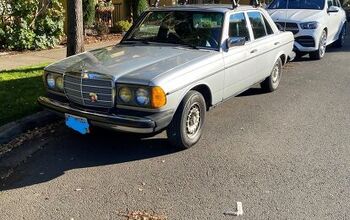New York Times On GM's Fleecing Of Small Town America

In the end, the money that towns across America gave General Motors did not matter… G.M. walked away and, thanks to a federal bailout, is once again profitable. The towns have not been so fortunate, having spent scarce funds in exchange for thousands of jobs that no longer exist.
Timing is everything. The exhaustively researched and rather bleak article regarding the predatory impact of major corporations on small, relatively powerless local governments that appeared in the New York Times on Saturday certainly doesn’t fit in with the what’s-good-for-General-Motors-is-good-for-the-country-and-everything’s-great mantra chanted by much of the press prior to the Presidential election. Let’s not be cynical; perhaps this is a brave example of speaking truth to power, the American paper of record demanding more accountability and more fairness from a corporation which is still largely owned by the United States Government.
Regardless, this piece (brought to our attention by Editor Emeritus Ed Niedermeyer) is worth reading with attention. From its taxpayer-funded greenfield factories in Tennessee to Ypsilanti’s surely doomed lawsuit against it, the specter of the General twists and twirls throughout the entire narrative. It’s written from a point of view that is classic NYT: business should be under the thumb of all governmental entities, from city council to Star Chamber, and those businesses should be held completely liable for any negative effect on their hosting communities, even if said negative effect is a result of unforeseeable circumstances. There’s a unique sort of mindset expressed in counting tax deferments as equal to lost income — that’s a lot like buying a set of work boots to get a job and then complaining that your boss just took the cost of those boots out of your pocket. It’s also somewhat disturbing to see the Times suggest, even obliquely, that collusion between governments to reduce tax incentives might be desirable.
Those minor quibbles aside, however, the article makes a solid point. A lot of communities spent a lot of money on General Motors, only to see their investments discarded and destroyed by a national government which absolved the debts, gave the UAW a seat made of investors’ bones on the board and told the city councils of the Midwest and elsewhere to go pound sand. Big government and big business hand in hand, crushing the opposition. There used to be a word for that, you know.

More by Jack Baruth
Latest Car Reviews
Read moreLatest Product Reviews
Read moreRecent Comments
- Redapple2 Love the wheels
- Redapple2 Good luck to them. They used to make great cars. 510. 240Z, Sentra SE-R. Maxima. Frontier.
- Joe65688619 Under Ghosn they went through the same short-term bottom-line thinking that GM did in the 80s/90s, and they have not recovered say, to their heyday in the 50s and 60s in terms of market share and innovation. Poor design decisions (a CVT in their front-wheel drive "4-Door Sports Car", model overlap in a poorly performing segment (they never needed the Altima AND the Maxima...what they needed was one vehicle with different drivetrain, including hybrid, to compete with the Accord/Camry, and decontenting their vehicles: My 2012 QX56 (I know, not a Nissan, but the same holds for the Armada) had power rear windows in the cargo area that could vent, a glass hatch on the back door that could be opened separate from the whole liftgate (in such a tall vehicle, kinda essential if you have it in a garage and want to load the trunk without having to open the garage door to make room for the lift gate), a nice driver's side folding armrest, and a few other quality-of-life details absent from my 2018 QX80. In a competitive market this attention to detai is can be the differentiator that sell cars. Now they are caught in the middle of the market, competing more with Hyundai and Kia and selling discounted vehicles near the same price points, but losing money on them. They invested also invested a lot in niche platforms. The Leaf was one of the first full EVs, but never really evolved. They misjudged the market - luxury EVs are selling, small budget models not so much. Variable compression engines offering little in terms of real-world power or tech, let a lot of complexity that is leading to higher failure rates. Aside from the Z and GT-R (low volume models), not much forced induction (whether your a fan or not, look at what Honda did with the CR-V and Acura RDX - same chassis, slap a turbo on it, make it nicer inside, and now you can sell it as a semi-premium brand with higher markup). That said, I do believe they retain the technical and engineering capability to do far better. About time management realized they need to make smarter investments and understand their markets better.
- Kwik_Shift_Pro4X Off-road fluff on vehicles that should not be off road needs to die.
- Kwik_Shift_Pro4X Saw this posted on social media; “Just bought a 2023 Tundra with the 14" screen. Let my son borrow it for the afternoon, he connected his phone to listen to his iTunes.The next day my insurance company raised my rates and added my son to my policy. The email said that a private company showed that my son drove the vehicle. He already had his own vehicle that he was insuring.My insurance company demanded he give all his insurance info and some private info for proof. He declined for privacy reasons and my insurance cancelled my policy.These new vehicles with their tech are on condition that we give up our privacy to enter their world. It's not worth it people.”


































Comments
Join the conversation
Thank you Jack for reiterating what I've been saying for years about RenCen's continued utter contempt for rural America, ironically enough the Detroit 3's historically most loyal customer base in N.A. I must say you put it a little more succinctly than I ever have. If this isn't a case for the imports to further advance into this often overlooked market and win over Small-town, USA, I DON'T KNOW WHAT IS. Having talked to some 'good old boys' (I.e. the Chevy/Mopar/FoMoCo or nothing crowd) while deer hunting in Northern MN recently, I feared rolling up to the hunting shack in my Accent, but the guys were very accepting.. This will never happen, but if Honda made a proper BOF Ridgeline, at least among those I talked to, they'd give it a chance up in the hinterlands, seems these guys are just as sick of the General as any suburban hipster.
"It’s also somewhat disturbing to see the Times suggest, even obliquely, that collusion between governments to reduce tax incentives might be desirable." Absolutely, because business would never lobby collectively for tax incentives or tax breaks. I read it on the Chamber of Commerce website.